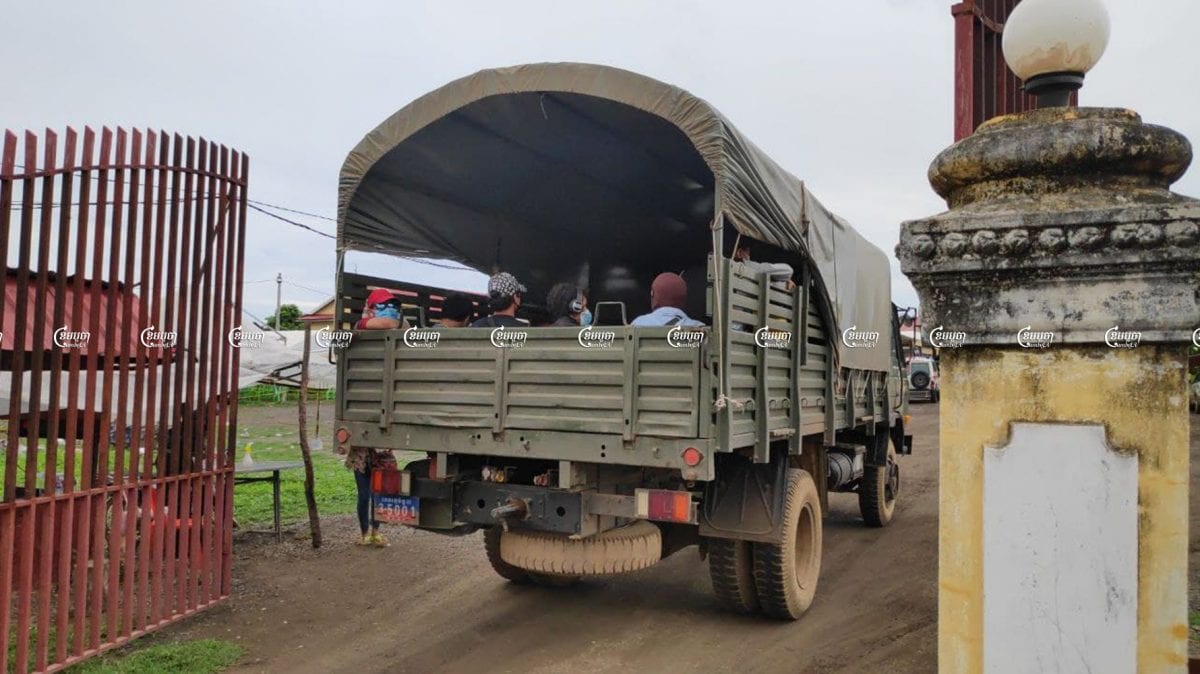Cambodian migrant workers have streamed back into their home country due to the hardships of the COVID-19 pandemic, but for many their return has only continued their economic challenges.
Due to job losses, economic restrictions and lockdowns in their host countries, about 200,000 Cambodian migrant workers have repatriated since the beginning of the pandemic in early 2020. Now, nearly 30 percent of their households have no income at all, according to a recent UN report, and more than 50 percent of these returned workers are indebted.
Though migrant laborers are often driven by hardships, the report offers compelling evidence of the vulnerabilities returning workers face amidst the continuing pandemic. The report, released last week, also found a gendered element to these challenges, suggesting female returned migrant workers are more likely than men to have no money and face more difficulties finding employment.
Phoem Rorn, 43, is one such worker.
“My family and I have worked as construction workers in Thailand for almost 10 years,” Rorn told CamboJA. “But in 2020, we decided to return to Cambodia due to the fear of COVID-19 when it first hit Thailand. I was so scared at that time, so coming back to my home county was the best option we could think of.”
Rorn said that she, her husband and oldest child could earn $10 per day doing construction work in Thailand. It was good money, she said, and their earnings supported her other three children who were living back in Cambodia with her mother.
But since her return, Rorn has found no regular work. Now living in the Banteay Meas district of Kampot province, she’s raising animals to help support her family.
“I have faced difficulties finding employment since I arrived in Cambodia,” she said. “One year later, I still do not have any jobs now. To increase my daily income, I have taken some loans from the bank to start up a small aquaculture. Life is completely different compared to when I was in Thailand.”
Moeun Tola, executive director of the rights group CENTRAL said stories like Rorn are common for returning migrants who struggle to find new jobs.
“They cannot pay back their debts, which is why some illegally cross the border back into Thailand despite the high risk of getting infected with a deadly virus,” Tola said.
Due to the severity of the COVID-19 outbreak in Thailand, more Cambodians migrant workers will likely return to their home country. Tola said this could potentially cause major social issues including rising poverty levels.
For Rorn’s family, the migration to Thailand for work still wasn’t enough to avoid financial problems even before the pandemic. Three of her children dropped out of their studies when they were in secondary school and started work at an early age. Only the youngest one, who is 15 years old, is in school, and the family now depends largely on the other childrens’ small salaries from work at a restaurant.
In a similar situation to Rorn is Phin Chhaiyet, a 21-year-old man who had previously worked at a factory in Thailand.
“It is easy to find a high-paid job with good working conditions. But things are not working the same in Cambodia.”
However, with the IDPoor card, Phoem Rorn’s family has received financial assistance from the government through a cash support program during COVID-19. With its six members, Phoem Rorn’s family gets $55 per month.
The money helps when paid work is scarce. But according to the report, only 25 percent of returned migrants have IDPoor cards and more than 49 percent have problems accessing health care due to lack of money or poor access to health care providers.
Ministry of Social Affairs spokesman Toch Channy said his ministry has overseen spending of greater than $351.7 million for the cash sponsorship program over the past year. In total, he said, about 2 million people across the country, or almost 652,500 families, have received this financial assistance.
“Those who have not yet had IDPoor cards need to contact the local authorities, just to confirm that they are really having financial difficulties during the COVID-19 pandemic,” said Toch Channy.
Tola, from CENTRAL, said the government should take serious action to extend help to the returnees, especially those without IDPoor cards. However, he said, this short-term financial assistance is an unsustainable solution to cope with the scale of the issue, recommending that the government also focus on creating jobs to absorb the influx of labor.
“During this ongoing pandemic, agriculture likely is the sector that can most help people to increase their daily income,” Tola said, suggesting the Ministry of Agriculture and other relevant authorities contribute technical and financial support to facilitate workers’ entry to agricultural work.
Heng Sour, the spokesman of the Ministry of Labor and Vocational Training could not be reached for comment. Returning migrant workers can access services through UN-supported Migrant Worker Resource Centres, including counselling, food aid, transportation, skills training, dispute resolution and listings for job opportunities.








